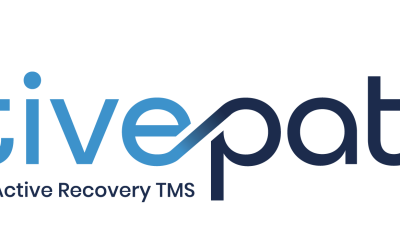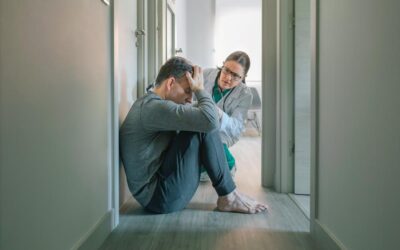One in seven adults will experience at least one depressive episode at some point in their lifetime. Once an individual suffers an initial instance of depression, there’s a 50 percent chance that they will relapse in the future. The physical and mental difficulties associated with major depressive disorder (or watching a loved one suffer) can be frustrating, exhausting, and heart-wrenching. While the underlying cause of depression is still not definitively known, there are many strategies that individuals can utilize to avoid triggers of depression. For some, staving off a depressive episode may be as simple as carving out a little time each day for self-care and introspection. However, with more severe forms of depression, medical intervention will be necessary. Transcranial magnetic stimulation (TMS) is an effective, FDA-approved treatment to help patients remit from depression. So what can trigger depression and how can a person minimize the risk of a depressive episode?
WHAT IS DEPRESSION?
Major depressive disorder is the leading cause of disability around the world, currently affecting more than 300 million individuals globally. It’s common for many individuals to experience a bad mood or a sad spell every now and then, however, depression is typified by severe symptoms suffered over an extended period of time. Depression symptoms are debilitating and often negatively impact multiple areas of a person’s life. Feelings of worthlessness and low self-esteem are typical hallmarks of depression for many sufferers. Other depression symptoms include a general feeling of sadness, lethargy, difficulty sleeping, and changes in appetite. Depressed individuals may feel withdrawn and begin to lose interest in activities or hobbies they once enjoyed. Even more severely, some instances of depression may even involve suicidal thoughts. These symptoms may vary in severity, however, depression symptoms must persist for more than two weeks to meet current diagnostic classification standards and only a medical professional can properly diagnose a individual’s depression. Without proper treatment, a depressive episode can last for weeks, months, or even years. With this in mind, it’s imperative for individuals to understand and avoid triggers of depression.
WHAT CAN TRIGGER DEPRESSION?
For those battling depression, it may be helpful to try to pinpoint the underlying cause of these depressive episodes. If a precipitating event is triggering a depressive episode, a medical professional will be more able to suggest appropriate coping strategies or ways to avoid personal triggers of depression.
Today, stress is a known trigger for depression along with a history of childhood abuse, the loss of loved one, neglect, occupational exhaustion, etc. The exact interconnection among stress, genetics, and depression is still up for debate in the scientific community. However, research has shown that stress likely plays a role in the onset of depression by inhibiting new neuron growth in the hippocampus, a portion of the limbic system involved in memory, learning, navigation, and recollection. While the mechanism is not fully understood, a family history of depression is often an indicator of depression risk. In fact, if a person’s mother, father, or sibling has been diagnosed with depression, their chances of also suffering from depression are doubled and possibly even tripled, according to research by Stanford Medicine. Women in particular are twice as likely as men to suffer from depression at some point in their lives. The exact cause for this is unknown, however, hormonal fluctuations associated with puberty, menstruation, menopause can prompt changes in mood similar to depression. Women are also at risk of developing certain types of depression related to childbirth, such as prenatal and postpartum depression.
It’s important to remember that depression may have seasonal factors for some patients. As the fall transitions into winter, it’s common for people to feel little sad and maybe more irritable than usual. While many people experience “the winter blues,” five percent of the population suffers from a seasonal type of depression known as seasonal affective dIsorder (SAD). The exact cause of SAD is still unknown, however, it is believed that decreased daylight hours during the winter months acts as a trigger for depression, due to the inhibition of melanin production, which can cause a disruption in circadian rhythms.
A case of depression may be related to a medical condition or medication. For example, a recent study found that approximately 15 percent of depression cases may be related to an existing illness or the effects of a medication. For this reasoning, it may be necessary to discuss depression symptoms with a medical professional and switch to another prescription. A medical screening may rule out a previous injury or existing condition such as thyroid hormone imbalances or heart disease. There is also a risk of depression as a result of improperly discontinuing a medication (namely, antidepressants). To prevent withdrawal symptoms and even depression triggers relapse, a doctor must taper the dosage before a patient can safely end a drug trial.
Drug and alcohol abuse can cause many complications for those struggling with depression, specifically with their sleep patterns. The vast majority of patients with major depressive disorder report difficulty sleeping and, in fact, sleep problems will often appear or become more pronounced before a depressive relapse. Drugs and alcohol may only exacerbate these sleep difficulties by disrupting neurotransmitters that are necessary for mood regulation. If a patient is battling drug and alcohol abuse, it is imperative to help these individuals with these substance abuse issues. Help may require joining a local support group, organizing an intervention, or even checking into a drug and alcohol rehabilitation facility. Once a substance abuse issue has been addressed, a therapist may be able to help pinpoint the underlying trigger for depression.
Whether a patient is dealing with seasonal depression or a recurring sense of loss, avoiding triggers of depression is a critical first step and there are plenty of helpful strategies to keep in mind to help minimize the risk of a depression relapse.
HOW CAN DEPRESSION TRIGGERS BE AVOIDED?
The old saying is that prevention is the best medicine and that concept might help for those suffering from mild to moderate depression. It may be possible to minimize the risk of relapse associated with a seasonal trigger for depression by simply incorporating healthier lifestyle habits and behaviors to their daily routine. For example, exercise has proven to be an “all natural” antidepressant for less severe cases of depression. Low-intensity exercises have been shown to help prompt nerve cell growth and improve overall brain function.
“In people who are depressed, neuroscientists have noticed that the hippocampus in the brain—the region that helps regulate mood—is smaller. Exercise supports nerve cell growth in the hippocampus, improving nerve cell connections, which helps relieve depression,” as stated by Dr. Miller, assistant professor of psychiatry at Harvard Medical School.
While there may be little someone can do about the sadness of having shorter days, sufferers of seasonal depression can empower themselves by making lifestyle adjustments during these months. If many seasonal depression triggers are related to decreased sunlight exposure, it may be beneficial for SAD sufferers to simply transition an indoor exercise regimen to the outdoors during the fall and winter. In more punishing climates, it may be necessary to use artificial light therapy indoors to mimic the effects of sunlight.
Another tried-and-true approach to coping with depression is harnessing the power of a self-care. A restorative self-care regimen can be as structured or casual as the person chooses. For some, a daily 30-minute guided meditation and maybe a little time set aside before bed for reflection and journaling may be helpful. Others may only need the self-care offered by a warm bath after a long day or a few minutes to kick up their heels and listen to a podcast or their favorite album.
Psychotherapy, also known as talk therapy, may help some patients avoid relapse. Cognitive behavioral therapy (CBT) is designed to help patients avoid triggers of depression by allowing patients to identify harmful thought processes and behaviors. A therapist will empower the patient with perspectives and strategies to more productively work through a difficult situation.
Even with the most proactive mental health regimen in place, relapse is common. If the aforementioned strategies have not adequately managed a patient’s depression triggers and symptoms, medical intervention may be necessary. Antidepressants are a common first-line treatment and selective serotonin reuptake inhibitors (SSRIs) are one of the most popular pharmaceuticals on the market today. These antidepressants are designed to alter a patient’s neurochemistry by blocking (inhibiting) the absorption (reuptake) of the neurotransmitter serotonin to increase communication throughout the brain.
Unfortunately, up to 60 percent of patients fail to experience adequate depression relief following drug therapy, according to the research journal Biological Psychiatry. Many patients experience a depression that is highly resistant to antidepressant drugs, known as treatment-resistant depression (TRD). If a patient has failed to experience symptom relief with medications, their doctor may recommend transcranial magnetic stimulation.
Instead of chemically altering a depressed patient’s brain, TMS is a noninvasive treatment that uses externally placed magnets. During TMS therapy, a magnetic coil placed above the patient’s head produces a magnetic field to increase brain cell activity in the prefrontal cortex. This magnetic treatment has proven to be an effective pathway toward remission for many types of depression including treatment resistant conditions.
“Approximately 50% to 60% of people with depression who have tried and failed to receive benefit from medications experience a clinically meaningful response with TMS. About one-third of these individuals experience a full remission, meaning that their symptoms go away completely,” according to a report by Harvard Medical School.
Equally promisingly, TMS is not accompanied by the common, severe side effects associated with drug therapy. With TMS, a patient can effectively treat their condition without the risk of adverse effects. In fact, the most common side effect of TMS is discomfort along the scalp during treatment and headache. If either of these are to occur, this mild discomfort can be readily relieved with over-the-counter medications.
Enduring the physical and emotional struggle of treatment-resistant depression can be exhausting and frustrating, but no longer do patients and their loved ones have to suffer through trial after trial of ineffective antidepressant drugs. Transcranial magnetic stimulation is an effective, drug-free depression treatment to consider for those who have failed to experience depression relief with one or more antidepressants.
FAQ’s
Can lifestyle changes help me cope with depression?
Yes, looking after yourself is important. Make sure you get enough sleep, eat well, exercise and make time for feel good activities like taking a walk, enjoying a bath, or making time for hobbies or reading.
What is SAD?
SAD stands for seasonal affective disorder and is linked to reduced daylight hours which inhibits the production of melanin.It causes feelings of sadness and irritability.
Are some people more at risk of depression?
Women are twice as likely to suffer from depression as men; it’s possible that this risk is associated with hormonal fluctuations. Research also shows that those with direct family members suffering from depression also have significantly increased risk too.
What causes depression?
The exact cause of depression isn’t understood. What is known is that stress, trauma, relationship problems, financial struggles, work issues, genetics, and hormonal changes can all play a role in triggering depressive symptoms.
All content provided on this blog is for informational purposes only and is not intended to be a substitute for professional medical advice, diagnosis, or treatment. Always seek the advice of your physician or other qualified health provider with any questions you may have regarding a medical condition. If you think you may have a medical emergency, call your doctor or 911 immediately. Reliance on any information provided by the Active Path website is solely at your own risk.





